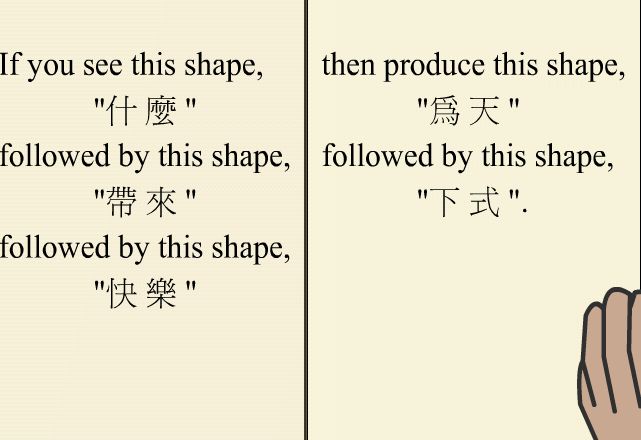Comments
Paola Garza
Derek Landini
Reference Information
Title - Minds, Brains, and Programs
Author - John R. Searle
(Also used information from this wikipedia article provided by the website)
Summary
The idea of the Chinese Room has been a great discussion among the leading thinkers of Artificial Intelligence for several years now. The idea behind this is that if a computer program can input Chinese characters, decide on a response to them, and output this response, does this computer program understand Chinese or is it simply coded a certain way to respond? Searle argues that the program does not understand the natural language by any means, it is simply simulating intelligent behavior by responding by simply following its coding. The main target of Searle is that of Strong AI, in which it is believed that the artificial intelligence matches or exceeds that of human intelligence
Discussion
I found this article to be very interesting. I have already taken Computer Science 420 here at A&M and this is one of the more important topics we discussed in the later part of that course. At this stage of Artificial Intelligence, I find it very hard to believe that there is technology out there than is as or more intelligent than human intelligence AKA strong AI. I do however believe that with the correct heuristic functions computer programs are able to make adequate decisions on their own. They may not be able to understand why they are, but they can read in inputs and use their logic in order to make the next best decision. This goes hand in hand with Searle's argument that yes the program is responding in Chinese but it does not know what it is saying or what was said to it.
Here is an interesting picture I found online that shows a simple If then statement for a possible Chinese Room program

You're distinguishing between Strong and Weak AI as AI that exceeds/fails to exceed human intelligence. That doesn't quite make sense to me; I think that you're missing something in there but maybe I am misunderstanding. Perhaps you can enlighten me?
ReplyDeleteI would argue that intelligence isn't a linear scale, and the actual distinction between strong & weak AI isn't the difficulty of problem in can solve but rather actually understanding the problem in question.
I agree with your notion that technology could evolve to the point that with the correct heuristic functions, computer programs can be made to make always (or mostly) correct decisions. However, I wouldn't be comfortable with calling such decision making "artificial intelligence" because there is no understanding going on; to me, such a heuristic just makes the computer an extremely glorified formal state manipulation machine.
ReplyDelete